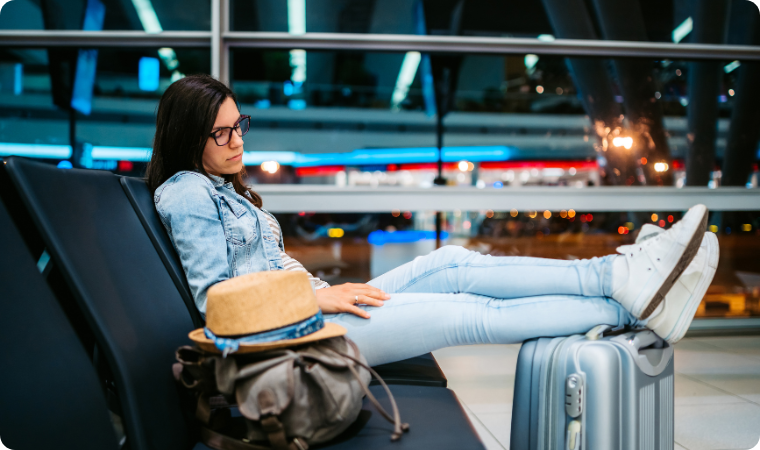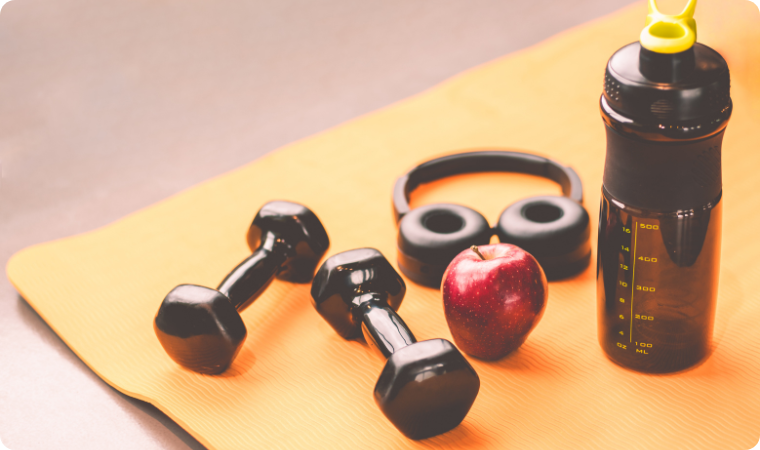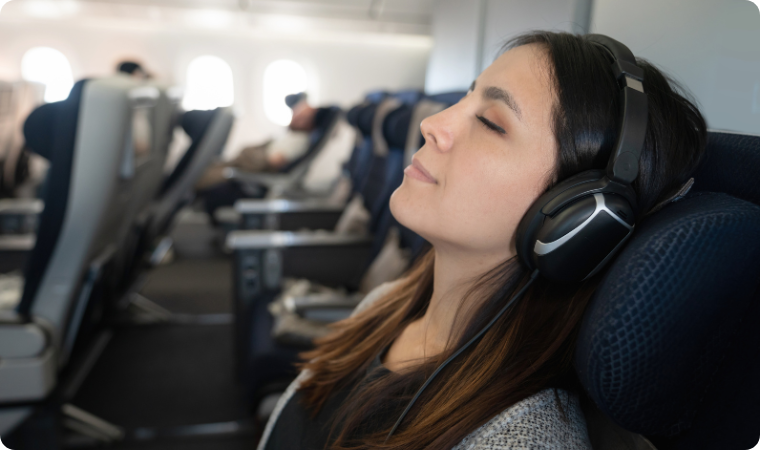We’ve all been there—flying across time zones, landing in a new city, and feeling like your body is still stuck in a different place. Jet lag can be a total mood killer, especially when you’ve got adventures waiting for you. But don’t worry! We've got some cool tips to help you beat jet lag and get back to enjoying your travels in no time.
1. Gradually Adjust Your Sleep Schedule Before You Travel
What Works: Gradually shifting your sleep schedule can help, but the timing is crucial. Aim to shift your bedtime by 1 hour each day for 3-4 days before you leave. This gives your circadian rhythm a head start in adjusting to the new timezone.
Pro Tip: If you’re flying east (to Europe), go to bed earlier and wake up earlier. If you’re flying west (to the US), go to bed later and wake up later.

2. Manage Light Exposure: It's a Game Changer
What Works: Exposure to natural light at the right times can dramatically improve your ability to adjust. Your body’s internal clock (circadian rhythm) is largely controlled by light, so make it work for you.
If you’re heading east (e.g., New Zealand to Europe): Get lots of sunlight in the morning to help advance your internal clock.
If you’re heading west (e.g., New Zealand to the US): Try to get sunlight in the afternoon to delay your body’s internal rhythm.
Pro Tip: Avoid bright screens (like your phone or laptop) before bedtime, as blue light can mess with your melatonin production, making it harder to sleep.
3. Stay Hydrated (But Avoid Overdoing Caffeine)
What Works: Staying hydrated is key, but here’s the kicker: coffee and alcohol can make jet lag worse by messing with your hydration and sleep patterns. Aeroplane cabins are dry, so drinking water throughout the flight is a must to stay hydrated and energised.
Pro Tip: Stick to water, herbal teas, or electrolyte drinks. Limit alcohol and caffeine to avoid disrupting your sleep later. 1Above the leading travel wellness effervescent can help to reduce jet lag. Simply drop into water, enjoy and arrive ready.

4. Take Short, Controlled Naps—But Don’t Overdo It
What Works: Napping can be a great way to reduce fatigue if you arrive and feel wiped out. However, long naps (over an hour) can throw off your sleep schedule and make adjusting harder.
Pro Tip: Keep naps to 20-30 minutes, preferably in the early afternoon. This will help recharge you without messing with your nighttime sleep.

5. Eat Your Meals According to the Local Time
What Works: Like light exposure, food plays a role in resetting your internal clock. Try eating meals at the local time as soon as you arrive, even if you're not super hungry. This helps train your body to adjust to the new timezone.
Pro Tip: Go for lighter, easier-to-digest meals that won’t leave you feeling sluggish. Think fruits, veggies, lean proteins, and carbs like rice or potatoes.

6. Avoid Stimulants Close to Bedtime
What Works: This one’s a no-brainer but worth mentioning—don’t load up on caffeine or alcohol close to bedtime. Both disrupt your ability to fall asleep and get quality rest.
Pro Tip: Try calming drinks like chamomile tea or a warm glass of milk to help your body relax before sleep.
7. Reset with a Good Workout
What Works: Light exercise, like walking or stretching, can help reset your body’s rhythm, especially after a long flight. It boosts circulation, helps with sleep, and combats fatigue.
Pro Tip: Avoid intense workouts right before bed, as they might make it harder to sleep. Stick to something like light yoga or a walk in the morning or early afternoon.

8. Be Patient and Give Your Body Time
What Works: Unfortunately, there’s no magic cure for jet lag. Your body needs time to adjust, and everyone’s different. Even with the best strategies, you might still experience some fatigue for a couple of days.
Pro Tip: Embrace the journey. Don’t stress out if it takes a day or two to feel normal again. Hydrate, eat well, get light exposure, and follow these tips to help your body get there faster!

Jet lag might feel like a travel rite of passage, but by following these research-backed strategies, you can seriously speed up your recovery time and get back to enjoying your trip sooner. Experiment with different methods to see what works best for you, and soon you’ll be the one giving tips on how to beat jet lag like a pro.
Disclaimer: While these tips are generally effective, everybody is different. Always listen to your body and adjust as needed.








